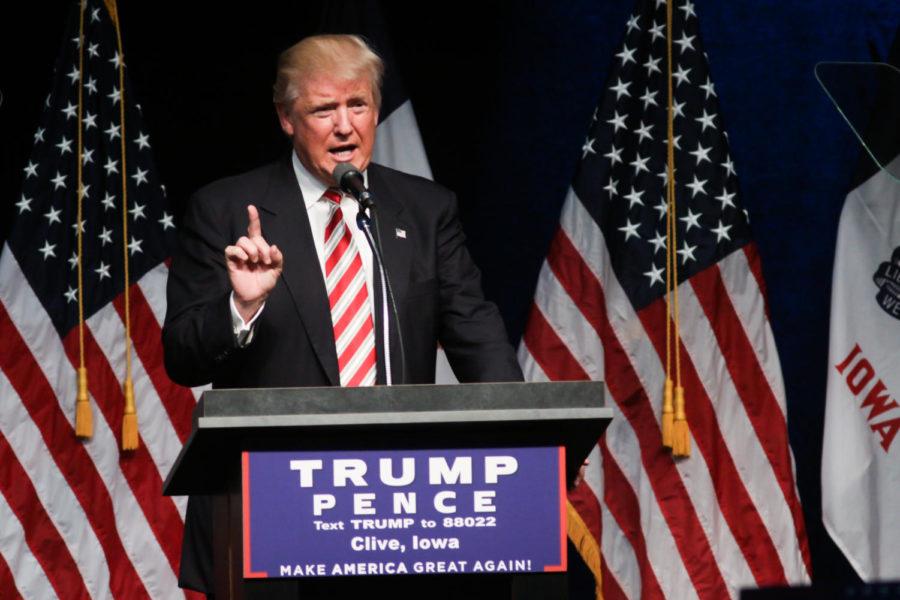Iowa State political science professors weigh in on Trump’s first address to Congress
Republican presidential nominee Donald Trump speaks at a rally Sept. 13 in Clive, Iowa. Trump spoke on a variety of topics, ranging from his opponent Hillary Clinton, to repealing Obamacare and getting rid of the Common Core education system.
March 1, 2017
Iowa State political science professors Steffen Schmidt and Dirk Deam weighed in on how they thought President Donald Trump fared in addressing Congress for the first time.
Deam and Schmidt drew comparisons to past presidents’ first addresses to Congress as well as the change in tone from the start of Trump’s campaign to now.
Schmidt believes Trump did considerably well compared to other presidents and by criteria of what kind of speech is expected from a Republican president.
“The speech was very good and on a mainstream conservative GOP standard. He delivered it very well,” Schmidt said.
Schmidt believes the speech was the beginning of a pivot to being “presidential” by Trump.
One of Trump’s main focuses was military spending, saying he plans to provide “a budget that rebuilds the military, eliminates the defense sequester and calls for one of the largest increases in national defense spending in American history.”
Deam said that it’s hard for him to see why the budget has to increase.
“The last time the budget was this high was with Reagan, and that blew a hole in the budget,” Deam said. “There were more negative consequences.”
Trump’s reference to the widow of a fallen soldier during his speech was seen as a misstep to Schmidt.
“I did find it too much to ‘use’ the widow of the fallen soldier as a prop,” Schmidt said. “It lasted too long and it was tasteless of Trump to point that the soldier was looking down from heaven and liking what he saw.”
Trump also made a point to mention that the 250th anniversary of the United States is nine years away. This event may not seem applicable, but Trump used it to mark the end of his possible eight years in office, asking what the country will look like at this time.
Deam said that this was a classic tactic used by presidents before Trump.
“That’s a common way of opening up hope and creating urgency,” Deam said. “The idea of holding out for some goal or something that we’re trying to reach is common.”
He compared it to former President John F. Kennedy’s goal of putting an American astronaut on the moon. Deam said that Kennedy created this urgency by making Americans feel that this goal wasn’t too far from being achieved, but wasn’t too close.
Another thing Schmidt noted was the improvement of staying on message by Trump, as opposed to what was seen on the campaign trail.
The key to Trump following through with the presidential momentum that his speech generated is to fill his rhetoric with more policy, which it is currently lacking, Schmidt said.
“He needs to follow this with less tweeting or more policy-oriented tweeting,” Schmidt said. “He also needs to now fill in the details of how he will accomplish the goals he has for the economy, jobs, taxes and foreign policy.”

















